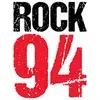New rock Live Radio Stations
Radio Stations
- - 0 N - Deutsch Rock on Radio

- - 0 N - Rock on Radio

- - 1 A - Rock von 1A Radio

- - 1 A - Rock von 1A Radio

- 12PUNKS.FM by rautemusik (rm.fm)12PUNKS.FM by rautemusik (rm.fm)
- AZ RockAZ Rock
- Bates FM Hard RockBates FM Hard Rock
- CJSD 94.3 "Rock 94" Thunder Bay, ON

- PureRock.US - America's Pure RockPureRock.US - America's Pure Rock
- Rádio Rebeca

- Radio ROKS New Rock

- RED FM - New Releases

- Rock 95

Choose a Genre
New Rock: The Evolution of Modern Sound
New rock, a genre that emerged in the 1990s and gained widespread popularity in the early 2000s, represents a fresh take on the classic sounds of alternative rock, grunge, and punk. This genre is distinguished by its innovative blend of familiar rock elements with modern, electronic influences, creating a sound that resonates with younger audiences while honoring the past. New rock captures the spirit of alternative music while embracing new technologies and sonic textures, making it an exciting and dynamic genre in the ever-evolving landscape of contemporary music.
The Rise of New Rock
New rock emerged as a reaction to the changing musical landscape of the late 20th century. While it retained the raw energy and rebellious spirit of classic rock, grunge, and punk, it added modern twists by incorporating electronic elements such as synthesizers, drum machines, and digital effects. This fusion of organic rock elements with synthetic sounds helped create a genre that felt fresh, progressive, and forward-thinking, appealing to a generation of listeners looking for something both familiar and innovative.
In the 1990s, as alternative rock continued to rise in popularity, new rock became the next step in its evolution. The genre quickly gained traction in the early 2000s, attracting a devoted fanbase that embraced its catchy, melodic choruses, memorable guitar riffs, and introspective yet accessible lyrics. New rock songs often explore a wide range of themes, including love, relationships, social issues, and personal growth, offering a soundtrack for the experiences of a new generation.
The Sound of New Rock
At its core, new rock maintains the essential qualities that define classic rock—powerful guitars, dynamic drumming, and emotive vocals—but with a more modern edge. The music often blends the intensity of punk rock with the melody of alternative rock and the experimentation of electronic music. The result is a genre that is simultaneously anthemic and introspective, accessible yet complex.
New rock also thrives on its diversity. While many bands stick to traditional rock instrumentation—guitar, bass, and drums—others experiment with synths, drum machines, and other electronic elements, allowing the genre to evolve with technological advancements. This incorporation of electronic sounds allows new rock to feel fresh and contemporary, distinguishing it from earlier rock subgenres.
Iconic Bands of New Rock
Several bands have played a pivotal role in defining the new rock genre and shaping its direction. These artists blend the legacy of classic rock with their own innovative ideas, influencing both the sound of new rock and the broader music scene.
Foo Fighters: Fronted by Dave Grohl, the Foo Fighters became one of the most successful bands of the 1990s and 2000s. With their catchy hooks, infectious energy, and anthemic choruses, Foo Fighters helped define the sound of new rock. Their ability to balance raw rock power with emotional depth has made them one of the most beloved bands in the genre.
Green Day: Known for their punk-influenced sound, Green Day’s brand of new rock combines catchy pop melodies with socially conscious lyrics. Albums like Dookie and American Idiot pushed the boundaries of punk rock while maintaining a strong connection to mainstream rock audiences, making them one of the genre's most influential acts.
Red Hot Chili Peppers: Fusing rock, funk, and punk, the Red Hot Chili Peppers brought an energetic, eclectic sound to new rock. Their unique blend of rhythmic bass lines, funky guitar riffs, and catchy melodies made them pioneers in creating a distinctive form of new rock that appeals to a wide audience.
Muse: Known for their grand, symphonic approach to rock, Muse blends electronic elements with rock, creating epic, stadium-filling anthems. Their complex compositions and thought-provoking lyrics have earned them a place among the top new rock bands, known for their ability to combine rock energy with futuristic soundscapes.
Twenty One Pilots, Imagine Dragons, and Awolnation: As modern innovators in the genre, bands like Twenty One Pilots, Imagine Dragons, and Awolnation incorporate synthesizers, drum machines, and digital effects, creating a more electronic-oriented brand of new rock. These bands have become staples on new rock radio stations, known for their genre-blending sounds that capture the essence of modern music trends.
New Rock Radio: A Hub for Fans
Radio stations dedicated to new rock music play an essential role in connecting listeners with the genre. These stations provide a curated selection of both classic and contemporary new rock, offering fans a diverse listening experience. New rock radio stations are often hosted by knowledgeable DJs who offer commentary on the latest music, interviews with artists, and news about upcoming tours and albums.
The format of these stations encourages listener interaction, with many programs featuring call-in segments where fans can share their thoughts on the music, request their favorite songs, or engage in discussions about new trends in the genre. These stations also provide an opportunity for newer bands to reach a wider audience, promoting fresh talent and helping to shape the future of new rock.
The Future of New Rock
New rock has established itself as a genre that blends tradition with innovation. Its ability to mix the energy and emotion of classic rock with modern electronic sounds has ensured its lasting appeal. As the genre continues to evolve, it will likely embrace new technologies and trends, allowing it to grow while remaining true to its roots.
Whether you're a fan of the classic alternative rock sound or the more experimental, electronic-infused style, new rock offers something for everyone. With its catchy melodies, anthemic choruses, and forward-thinking sound, new rock is a genre that will continue to shape the musical landscape for years to come.
New rock, a genre that emerged in the 1990s and gained widespread popularity in the early 2000s, represents a fresh take on the classic sounds of alternative rock, grunge, and punk. This genre is distinguished by its innovative blend of familiar rock elements with modern, electronic influences, creating a sound that resonates with younger audiences while honoring the past. New rock captures the spirit of alternative music while embracing new technologies and sonic textures, making it an exciting and dynamic genre in the ever-evolving landscape of contemporary music.
The Rise of New Rock
New rock emerged as a reaction to the changing musical landscape of the late 20th century. While it retained the raw energy and rebellious spirit of classic rock, grunge, and punk, it added modern twists by incorporating electronic elements such as synthesizers, drum machines, and digital effects. This fusion of organic rock elements with synthetic sounds helped create a genre that felt fresh, progressive, and forward-thinking, appealing to a generation of listeners looking for something both familiar and innovative.
In the 1990s, as alternative rock continued to rise in popularity, new rock became the next step in its evolution. The genre quickly gained traction in the early 2000s, attracting a devoted fanbase that embraced its catchy, melodic choruses, memorable guitar riffs, and introspective yet accessible lyrics. New rock songs often explore a wide range of themes, including love, relationships, social issues, and personal growth, offering a soundtrack for the experiences of a new generation.
The Sound of New Rock
At its core, new rock maintains the essential qualities that define classic rock—powerful guitars, dynamic drumming, and emotive vocals—but with a more modern edge. The music often blends the intensity of punk rock with the melody of alternative rock and the experimentation of electronic music. The result is a genre that is simultaneously anthemic and introspective, accessible yet complex.
New rock also thrives on its diversity. While many bands stick to traditional rock instrumentation—guitar, bass, and drums—others experiment with synths, drum machines, and other electronic elements, allowing the genre to evolve with technological advancements. This incorporation of electronic sounds allows new rock to feel fresh and contemporary, distinguishing it from earlier rock subgenres.
Iconic Bands of New Rock
Several bands have played a pivotal role in defining the new rock genre and shaping its direction. These artists blend the legacy of classic rock with their own innovative ideas, influencing both the sound of new rock and the broader music scene.
Foo Fighters: Fronted by Dave Grohl, the Foo Fighters became one of the most successful bands of the 1990s and 2000s. With their catchy hooks, infectious energy, and anthemic choruses, Foo Fighters helped define the sound of new rock. Their ability to balance raw rock power with emotional depth has made them one of the most beloved bands in the genre.
Green Day: Known for their punk-influenced sound, Green Day’s brand of new rock combines catchy pop melodies with socially conscious lyrics. Albums like Dookie and American Idiot pushed the boundaries of punk rock while maintaining a strong connection to mainstream rock audiences, making them one of the genre's most influential acts.
Red Hot Chili Peppers: Fusing rock, funk, and punk, the Red Hot Chili Peppers brought an energetic, eclectic sound to new rock. Their unique blend of rhythmic bass lines, funky guitar riffs, and catchy melodies made them pioneers in creating a distinctive form of new rock that appeals to a wide audience.
Muse: Known for their grand, symphonic approach to rock, Muse blends electronic elements with rock, creating epic, stadium-filling anthems. Their complex compositions and thought-provoking lyrics have earned them a place among the top new rock bands, known for their ability to combine rock energy with futuristic soundscapes.
Twenty One Pilots, Imagine Dragons, and Awolnation: As modern innovators in the genre, bands like Twenty One Pilots, Imagine Dragons, and Awolnation incorporate synthesizers, drum machines, and digital effects, creating a more electronic-oriented brand of new rock. These bands have become staples on new rock radio stations, known for their genre-blending sounds that capture the essence of modern music trends.
New Rock Radio: A Hub for Fans
Radio stations dedicated to new rock music play an essential role in connecting listeners with the genre. These stations provide a curated selection of both classic and contemporary new rock, offering fans a diverse listening experience. New rock radio stations are often hosted by knowledgeable DJs who offer commentary on the latest music, interviews with artists, and news about upcoming tours and albums.
The format of these stations encourages listener interaction, with many programs featuring call-in segments where fans can share their thoughts on the music, request their favorite songs, or engage in discussions about new trends in the genre. These stations also provide an opportunity for newer bands to reach a wider audience, promoting fresh talent and helping to shape the future of new rock.
The Future of New Rock
New rock has established itself as a genre that blends tradition with innovation. Its ability to mix the energy and emotion of classic rock with modern electronic sounds has ensured its lasting appeal. As the genre continues to evolve, it will likely embrace new technologies and trends, allowing it to grow while remaining true to its roots.
Whether you're a fan of the classic alternative rock sound or the more experimental, electronic-infused style, new rock offers something for everyone. With its catchy melodies, anthemic choruses, and forward-thinking sound, new rock is a genre that will continue to shape the musical landscape for years to come.